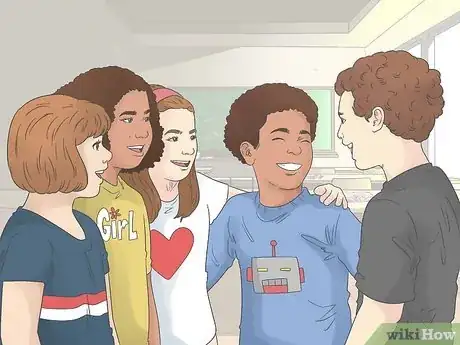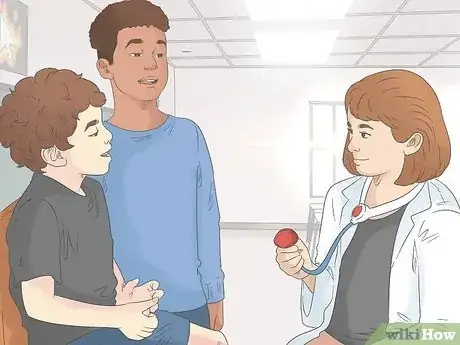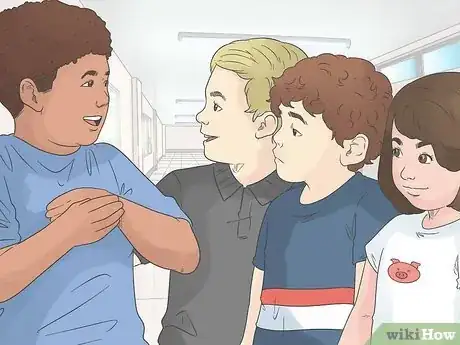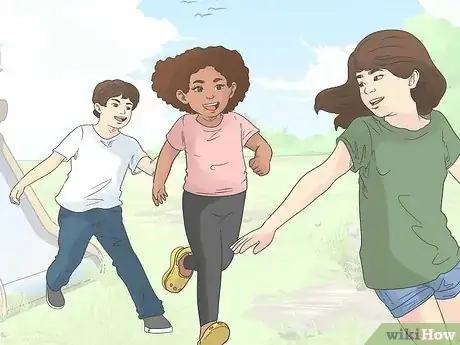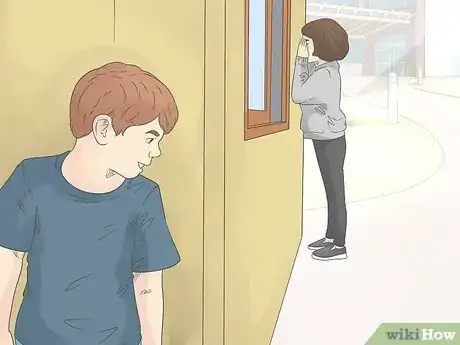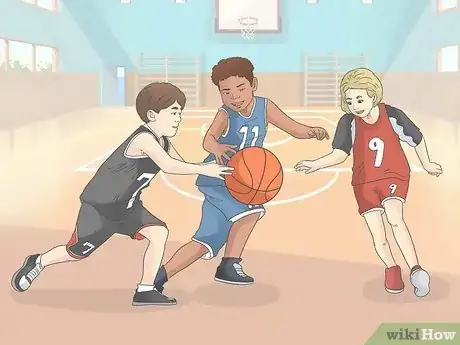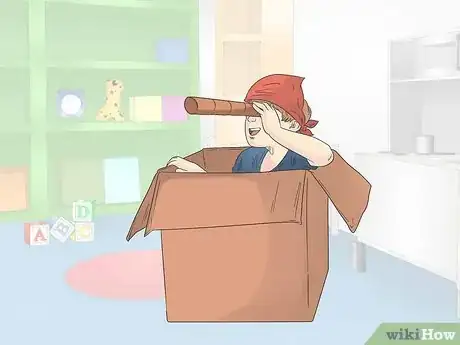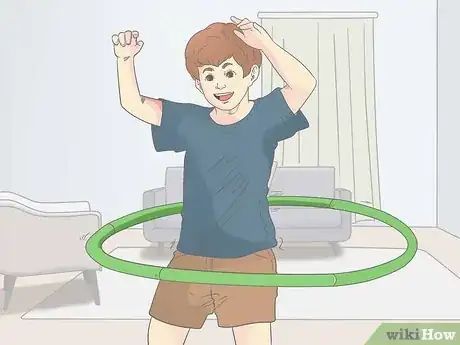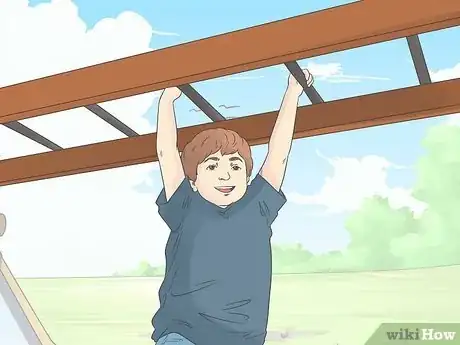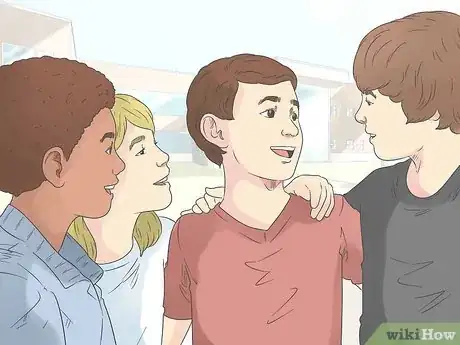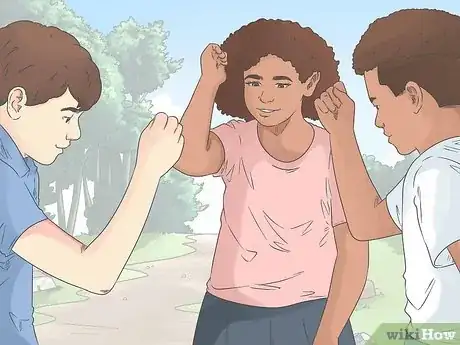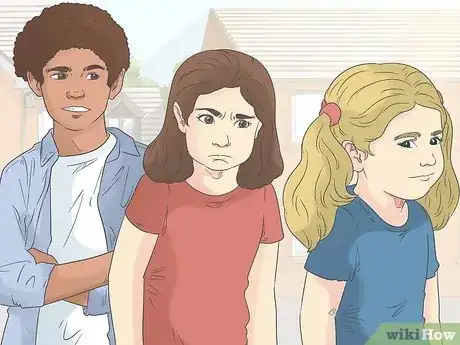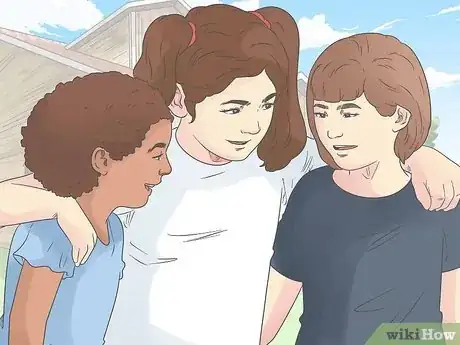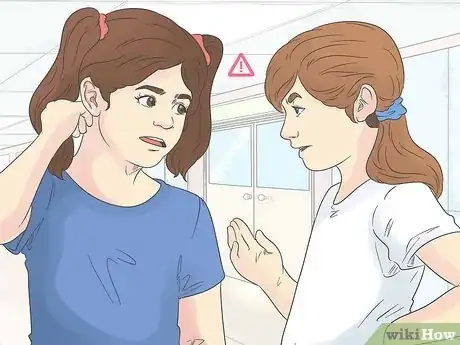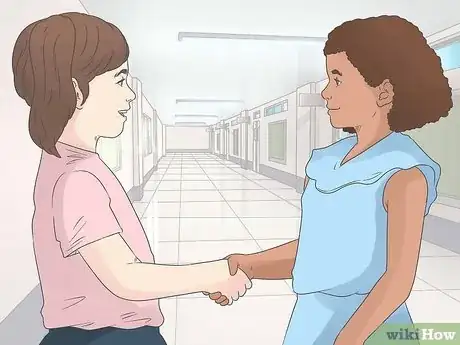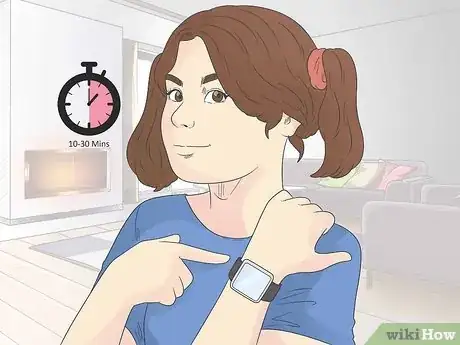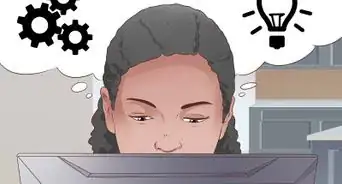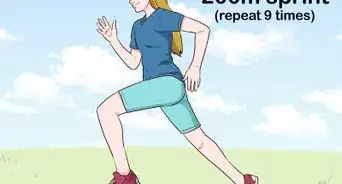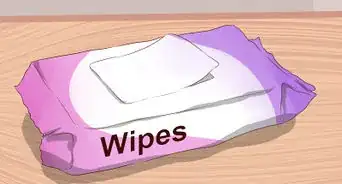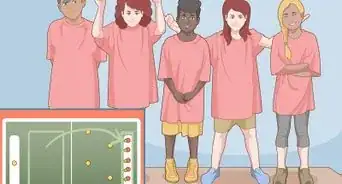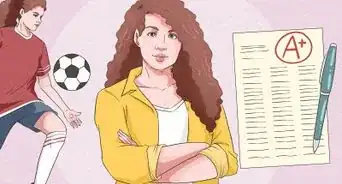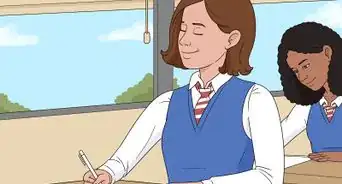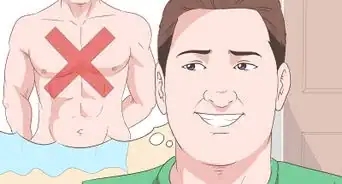X
wikiHow is a “wiki,” similar to Wikipedia, which means that many of our articles are co-written by multiple authors. To create this article, volunteer authors worked to edit and improve it over time.
This article has been viewed 6,662 times.
Learn more...
Elementary/primary schools across the world have a class that most students look forward too- recess (called break/playtime in the UK and Australia). Recess is supposed to be a fun activity, and you can do anything you want during the break time. Most elementary/primary schools have a morning recess and a lunch recess (break time after lunch). Sometimes, kids might not know what to do at recess. Follow these tips to find something fun to do at recess.
Steps
Part 1
Part 1 of 3:
Thinking of Fun Activities
-
1Think of fun physical activities to do. Recess is enjoyed by kids because they can run around, jump, and do a lot of activity on the playground. It is not like PE (physical education/gym) class, where the participation in boring physical exercises is mandatory. During recess, you can think about other fun physical activities to do without worrying about grades or competition.
- Besides, running around and doing exercise is good for your health. It gives your lungs, heart, and muscles a workout! [1]
- You can take inspiration on what other kids are doing.
- You can even invent a game for you and your classmates to play.
-
2Think of fun games where you can use your imagination. Class isn't always fun, and you may get in trouble for speaking too much. At recess, you can do almost anything you want, and you can create fun, imaginative games. This releases your creativity and exercises your brain.
- You might like playing pretend, role playing, or imagining adventure scenarios (e.g. getting stuck in a desert, surviving an earthquake, dueling in the Wild West, etc.)
Advertisement -
3Think of games that your friends are interested in playing. Playing alone is boring for most kids, so you'll want your friends to join you.
- Find a game that your friends agree on by discussing for a few minutes during recess.
- You could also let your friends vote, and the game with the most amount of votes gets played.
Advertisement
Part 2
Part 2 of 3:
Fun Activities to Do
-
1Play tag with a group of friends. Tag is a classic game choice during recess, and it's very fun. It also gets your body moving, which gives you a healthy amount of exercise.
- Make sure you don't accidentally bump into someone or tag a person too hard, as this could injure the person.
- There are many variants of tag, including zombie tag, infection tag, werewolf, and lava monster. These make the game more fun!
- If your friends can't decide who should be "it", do "Eenie Meenie Miney Mo" or "Blue Shoe".
- Eenie meenie minie mo goes like this: Eenie meenie minie mo, catch a tiger by its toe, if he hollers, let him go, Eenie meenie minie mo! Each time you recite a syllable of the rhyme, tap someone's shoe. The last person's shoe you tap on is "it".
- Blue shoe goes like this, "Blue shoe, blue shoe, who's it, not you." Another variant goes like this, "Blue shoe, blue shoe, who's it, it's you". Each time you recite a syllable of the rhyme, tap someone's shoe. In the first variant, the last person's shoe you tap on is not "it", and they can run to a play structure for base. Keep doing this multiple times until there's only 1 person left. The last person whose shoe didn't get tapped on last is "it". In the 2nd variant, the last person's shoe you tap on is "it".
-
2Play hide and seek. This is an engaging game which is also played during recess. The basic game of people hiding and a person seeking/finding the people has been played for many centuries.
-
3Exercise with ball-related activities. You can do a lot with balls since there are a lot of games created to use them. Some of these games include:
- Basketball, which has been played for at least a century. It was invented in 1891 by James Naismith when his students weren't able to go outside to exercise due to the harsh, snowy winter. [2]
- Soccer (also called football in other countries), which is a popular ball game where you kick a soccer ball and try to get it to the other side (where the goal is).
- Play American Football, which is the American-style way of playing football. Other countries call soccer football, so the word "American" is used to tell the difference between the two sports.
- Dodgeball, which is still a popular game after many centuries of time. You can play this if you have many friends or classmates you can split up into teams.
- Volleyball, where you cooperate with your teammates to serve a volleyball to the other side of the net. If the ball makes it through the net and onto the floor, the serving team wins.
- Baseball, which is a good game for developing your arm strength and your running speed. If your school has a baseball field, you can play this game.
- Four square, a simple ball game that is easy to play.
- Kickball, which is a game similar to baseball (except that you kick the ball instead of hitting it with a bat). This game can be a substitute for baseball if your school doesn't have a baseball field.
-
4Use your imagination to think of fun games. Imagining fun things on the playground can make a boring field or play structure fun and exciting. This helps with your creativity, which is helpful in solving problems and thinking of creative stories.
- You can imagine adventure scenarios such as if the playground is full of zombies. You could also imagine that a tall play structure is a mountain, and you are trying to climb it. You can also imagine that you are escaping a scary thing (monsters, zombies, ghosts, mummies, goblins, witches, etc.)
- Some kids like to role play things that they learned in history. You could pretend that you are a cowboy in the Wild West, or a medieval princess trying to escape a dungeon. Other examples include pretending as a colonist in Colonial America, a farmer in the countryside, or an aristocratic family in the Victorian era.
- You can role play by playing Family. Basically, each person in the game is a member of the family. There can be parents, children, aunts, uncles, cousins, pets, and other friends in the game. Then, you can think of situations that the family would be in. You and your friends can set how many family members there are, a role for each friend, what type of family they are going to role play (e.g. rich or poor, evil or good, what personality each family member is, etc.) This can range from typical situations (e.g. going shopping, going to school, getting a snack, going to the dentist/doctor) to crazy situations (e.g. getting attacked by zombies, turning into vampires, escaping a plane crash, going into a jungle with mysterious animals, etc.)
- You can pretend to be someone in a book you read to really experience what the character is experiencing. You could pretend to be Jack in The Magic Tree House, Junie B. Jones in the Junie B. Jones series, Lucy Pevensie in the The Lion, the Witch, and the Wardrobe, or Hermione in the Harry Potter series. Think of a book you like very much, and pretend to be a character in the book that you like. You can ask your friends to portray the other characters in the book. Then, you can switch and let your friends choose a book that they like.
-
5Play using other tools you can find. There are many things you can do during recess besides sports, running, and ball-related exercise. Your school is likely to have extra PE or exercise equipment for fun activities or rainy days (where indoor, smaller activities will fit better in a classroom). This includes:
- Jump ropes
- Hula hoops
- Bouncy balls
- Scoop ball sets, which are sets of small scoops and small balls. You use the scoops to catch the balls.
-
6Play however you want on the play structures. Usually, elementary schools have play structures for younger and older kids to play on. If you don't have a specific plan or game you want to play, you can just go on the play structures.
- Go down the slides of the playground. Make sure to wait until the person in front of you completely slides off- you could push the person off the slide if they are still on it, which can injure them.
- Swing on the monkey bars. It may be difficult to grip if you haven't went on them before, but you just need to practice. Practice your grip strength and how long you can hold onto a bar, then practice swinging from bar to bar.
- Climb on the stairs and ladders leading to other play structures and slides.
- Go down the corkscrew climber if your school's play structure has one. You step off the platform onto the corkscrew, then turn yourself down until you reach the floor.
- Use the vertical sliding pole next to play structures if your school has one. It looks tall and scary, but you just have to step onto the pole, hold on, and slide down. Your hands may hurt a bit, but it will be over in seconds.
- Swing on the swings if your school has swings. Many schools don't have swings due to space constraints, but if your school has swings, swing on them.
- Go onto the seesaw/teeter-totter if your school has them. Go up and down with a friend.
-
7Talk with your friends. Sometimes, plain talking with friends can make for a meaningful time at recess. Older kids (ages 8-11) might want to talk more with friends than run around and play games. If you haven't caught up with life updates from your friends or don't want to play "kid" games anymore, you can talk to your friends. Find a play structure to sit on, go to the field, or go on an outdoor basketball court where you can sit and chat.
- Talk about funny things that happened at school, things happening at home, or new life updates (e.g. getting a new sibling, having relatives over, getting a pet) for a light-hearted chat.
- Talk about things that are causing stress (tests, bullying, peer pressure, family problems) if you want a more serious talk. Your friends can help you with some situations or tell an adult if it is a very serious situation (abuse, bullying, anxiety, depression, etc.).
-
8Play indoors if there's a storm outside. If it's raining, snowing, or if there's a thunderstorm, the teacher will usually call students inside for safety reasons. Playing outside where there's lightning or heavy rain is dangerous, since students could trip during foggy conditions, get hurt by snow, or potentially get struck by lightning. Even though being cooped up indoors sounds boring, there are a lot of activities to do inside.
- Play board games
- Play rock, paper, scissors
- Make an online project (if your teacher allows computers during recess)
- Make a project using paper, clay, and stationery
- Play paper games such as hangman
- Play the popular game often played during rainy days at school, heads down thumbs up.
- Chat with your friends
Advertisement
Part 3
Part 3 of 3:
Addressing Reasons for Bad Recess Time
-
1Cope with bullying at school. Sometimes, there's just that one kid that keeps teasing, making fun of you, or even beating you up that makes recess something you dread. If this is the case, you have to tell someone. If you don't tell anyone, no one will know you need help, and you will continue to get bullied unless someone else sees it.
- If it's just light teasing, and they don't tease you often, just ignore them at first. People tease often to get attention or laughs. They might think that teasing you is genuinely funny. If you don't like it, you can tell them, "Can you please stop talking about that? I don't feel comfortable with it", or something along the lines of that. If they continue to do this or start to bully you, tell a trusted adult at your school.
- If it's verbal or physical bullying, you must tell a teacher and/or a caretaker. The teacher will help stop the bully from bullying you, and your caretaker will help you deal with the emotions associated with bullying. Verbal bullying can include saying insults often (e.g. "You look so ugly!", "You're so fat, there's no way you can play basketball!", "Nerd!", "Why are you even in my class- your teeth are terrible!", etc.) and gossiping behind your back. To gossip means to tell untrue things about someone. These are usually rumors or lies. Physical bullying can include pushing, shoving, punching, or kicking someone.
- If you can't tell the difference between teasing and bullying, check this article.
-
2Deal with conflicts in friendships. One reason why some kids are reluctant to go to recess is because of conflict in their friendships. Some kids may be shy and scared to propose a solution since they are afraid of offending someone. Others might not know how to solve the conflict.
- If your friends are arguing over something, try to get them to see common ground. For example, you could say, "Guys, the point is that we all want to find a game to play, right?". Then, you guys could work together to propose a solution. If you and your friends are fighting over which game to play, you could suggest playing game #1 on Mondays and Wednesdays, game #2 on Tuesdays and Thursdays, and general talking on Fridays.
- You could also get your friends to compromise. You could say, "Maybe you guys help color this project, and the others could decorate it." if your friends are fighting over what roles each person gets when making a project.
- If your friends really cannot solve the problem, you may have to tell a teacher. Sometimes you need a mediator (an unbiased person) to see the issue from both points of view. This is usually a teacher. You will have to tell a teacher if their arguing gets worse or physical (e.g. shouting insults instead of working together to find a solution).
-
3Identify bad friends. During recess, you might not enjoy the experience because of a bad friend. The friend might make recess boring, scary, or terrible. They might force you to only play with them, or they might gossip behind your back. There are many signs of bad friends, and in all cases you have to drop the friend if they don't listen to your concerns over their behavior. These signs include:
- Not regarding or listening to your opinions (Doesn't mean agreeing with your opinions, but just knowing that you even have an opinion)
- Gossiping behind your back
- Bullying you (verbal or physical)
- Ignoring you when you meet with them
- Lying to you often/every time you meet
- Forcing you to do something you don't want to do
- Making you change to let you into the friend group (e.g. forcing you to dye your hair and listen to music to become their friend, forcing you to game to be a part of the group), which is a sign of a clique
- Telling you to do dangerous/unethical things (doing drugs, vandalizing, stealing, bullying others, disrupting the class, drinking alcohol underage, etc.)
-
4Make friends at school if you haven't already. Recess can be boring if there's no one to play or talk with! If you have dumped bad friends or don't have any, making new ones is a good place to start.
- Start with chatting with other lonely people at recess to see what they like. If their interests are similar to yours and they want to be your friend, you can be their friend too.
- Join clubs and extracurriculars to find people with the same hobbies as you. If you like playing chess, join the chess club at your school to find other chess enthusiasts. If you enjoy soccer, join the soccer club to see other soccer fans. Talk with these people during club times, recess, and lunch to get to know them better.
- You could ask someone, "Hi, my name is ____. How are you doing today/What is your name?", and wait for them to reply. After they reply, you could say, "Hi! What is your name/What do you enjoy doing/What are your hobbies?". From there, you can either stop the conversation if it's leading to nowhere/boring by saying, "Thanks, but I have another class/I have to go home/I have a doctor's appointment/I have to go. It was nice meeting you! Goodbye!" or continue the conversation if the person has the same interests as you.
-
5Deal with not enough time at recess. Recess can range from 10 to 30 minutes long, and sometimes that isn't enough time. You only start to play a game when the teacher says, "Recess is over!" or the bell rings. Think of the reasons of why recess is too short for you and your friends.
- Maybe you and your friends take too long to decide on a game. In this case, think of what to play beforehand. Maybe get to school early to decide, or decide on games for tomorrow when school's over.
- You get in trouble too often, so recess is often short for you. Sometimes, teachers discipline distracting students by cutting down on recess time. Most of the recess time would be spent understanding what they did wrong, writing a note to say sorry, detention, or other things in the classroom. To solve this, try not to talk during class or disrupt the class in other ways. If the class is boring, try to find ways to listen. Don't bully classmates or do mean things to others. Don't do distracting things during class (talking, asking irrelevant questions, making jokes, passing notes to others, etc.), when everyone is trying to learn.
- You don't stay on track with assignments, leading you to make them up during recess. To combat this, remove all distractions (toys, cool books, electronics, family members) when you are doing homework. Once you finish up your homework at recess, do all of your current homework without any distractions. If you want to play with an action figure, put it on a high cabinet or inside of your closet- anywhere that you can't get to easily. Ask your parents to install apps/extensions that monitor which websites you go to on the device you use for homework if they have not yet. After you finish your homework, reward yourself by playing with toys, spending time with family, going outside, or watching videos.
Advertisement
Warnings
- If someone's bullying you, immediately tell a teacher.⧼thumbs_response⧽
- Don't listen to anyone who tells you to bully others, steal, drink underage, do drugs, vandalize, or do any bad things. These people can get you into trouble, and doing bad things to yourself/others is not good for society.⧼thumbs_response⧽
- Be careful not to trip or bump into someone during tag. And don't accidentally push or tag someone too hard during the game.⧼thumbs_response⧽
- If you are badly injured, stop playing and tell the teacher. If it really hurts when you try to move, you may have sprained an area of your body or even broken a bone.⧼thumbs_response⧽
Advertisement
References
About This Article
Advertisement
